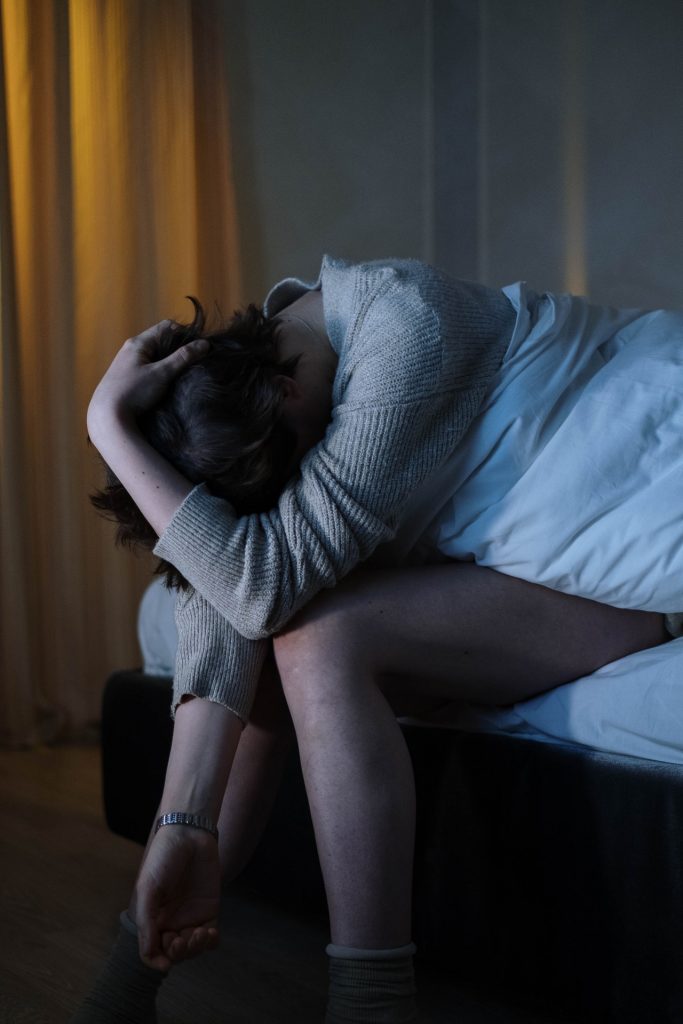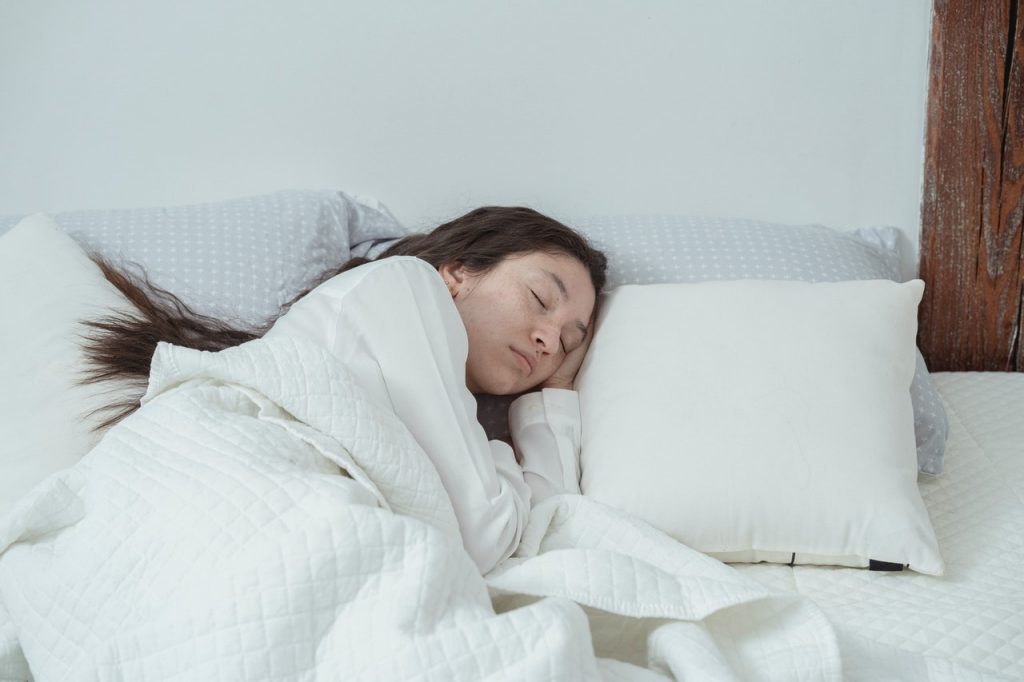
Do you think your sleep is no longer adequate? Do you have a hard time falling asleep or wake up much too early? At that time, try determining the possible causes of insomnia.
What is considered chronic insomnia?
Insomnia can occur sporadically to anybody and is usually caused by stressful situations which happened the previous day. Occasional problems with sleeping can also happen during bad weather conditions, travel, or a respiratory infection. However, chronic insomnia begins when the sleep issues remain for at least a few weeks.
Chronic insomnia — what should I do next?
If your difficulties with insomnia seem not to disappear even though you try your best to improve your sleep hygiene, you should visit a specialist. They may be a family doctor who would arrange an appointment for the medical examinations.
Insomnia related health disorders
Mental health conditions
Psychological problems like anxiety, depression, and bipolar disorder can lay at the bottom of the sleeping disorder. According to the studies, even 40% of people suffering from insomnia struggle with mental health issues. Therefore, it is worth noticing that serious sleeping issues can be both a somatic symptom and the cause of depression. However, in each case, the administration of antidepressants should improve the quality of sleep.

Cardiovascular problems
Left-sided heart failure is one of the more severe cases of insomnia. Then, the patient is unable to lie flat. This happens when the heart cannot pump the blood gathered in the lungs. As a result, they have trouble breathing and need to sit down, which leads to waking up.
Breathing problems
Asthma also correlates with sleep disturbances, as the attacks of breathlessness occur most commonly at night. Chronic obstructive lung disease can also be related to poor sleep quality at night and shortening its time.
Hormonal imbalance
One of the most common endocrinologic diseases is hyperthyroidism, which can also lead to distress or heart rate acceleration, resulting in sleeping difficulties. Therefore, if your thyroid does not work correctly, the priorities are: taking care of sleep, getting rid of stress, and supporting the immune system.
Menopause
According to the studies, estrogens prolong the REM phase. Therefore, women after menopause may have a hard time sleeping peacefully. In this case, using hormone replacement therapy should help.
Neurodegenerative diseases
Neurodegenerative disorders like dementia and Alzheimer’s dementia significantly impact sleep quality. They can throw off a person’s circadian rhythm and perception of daily cues that drive the sleep-wake cycle. Therefore, nighttime confusion can more significantly worsen sleep quality.
Gastrointestinal problems
Heartburn is an unpleasant issue that can make you wake up even a few times at night and worsen your mood. It has a significant impact on your life quality and. Therefore, of course, it impacts your sleep.
Restless Legs Syndrome
According to the studies, about 10% of people suffer from this disease. It is often described as involuntary legs movements. This is accompanied by unpleasant sensory experiences, which lead to sleeping issues. It is important to emphasize that the treatment of people with this syndrome is symptomatic.
In other words, it alleviates the symptoms of the disease but does not provide a complete cure. Its causes are still unknown. RLS itself does not lead to brain damage or neurological impairment. Nor does it pose a threat to the patient’s life or performance.
If the disorder is of minor intensity, it is not recommended to administer dopaminergic drugs. Nor, when the symptoms do not interfere with life, the patient gets enough sleep or has only slight sleep disturbances.
Cognitive Behavioral Therapy for Insomnia
What are some home remedies for insomnia?
Although chronic insomnia is more difficult to be treated than an occasional one, there are still some things you can do at home to prevent and cure it. The most significant one is maintaining your sleep hygiene and, in other words, having both a bedroom environment and daily routines that promote consistent, uninterrupted sleep.

Keep a consistent sleep schedule
Go to sleep and waking up at the same time. This will help you reset your broken internal sleep clock and make it easier to fall asleep and wake up. Try to improve your daily schedule so that you can give yourself 7 to 8 hours of sleep. It is worth keeping this schedule, regardless of a weekday or weekend.
Eat healthy
Keep a diet that contributes a healthy sleep. Reduce caffeine and processed sugar in the afternoon, give up any alcohol and cigarettes. Provide regular meals and keep your body hydrated.
Avoid heavy digestible foods for the last meal of the day. The supper should be eaten about two hours before going to sleep. It should be light and easily digestible. Some products promote the secretion of melatonin: raspberries, strawberries, blackberries, gooseberries, and currants.
Some drinks can also be helpful as they contain tryptophan: warm milk and lemon balm tea. This is an organic chemical compound that is a precursor of serotonin (commonly known as the happiness hormone) and melatonin (a hormone that regulates physiological sleep).
Exercise
Remember to stay physically active. Regular exercises, walks are beneficial for your health, also in terms of sleep. The proper level of vitamin D, achieved through physical activities outdoors, stimulates the activity of hormones, including serotonin and melatonin. These hormones are responsible for regulating your natural internal clock, length, and quality of sleep.
Create an ideal sleeping space
Create an environment that supports the quality of sleep. The room should be darkened, moderately cool (between 15.5 and 19.5 degrees Celsius), and aired. The more comfortable you feel there, the easier it is to relax and fall asleep without disturbances.
Try relaxation techniques
Try relaxing before going to sleep. As it was previously mentioned, stress is a significant factor in insomnia. Therefore, it is essential to learn to cope with stressful situations. It is also good to introduce some relaxation rituals before sleep: having a bath with essential oils, listening to calm music, doing yoga, etc.
Don’t check how much sleep you have left
Don’t look at the clock. Counting the hours left will not help you to fall asleep. It will stress you instead. Best remove the alarm clock from the bedroom. Instead, try doing some stretching exercises, read your favorite book, which will put you in a calm mood, listen to relaxation music. Do anything which would help you relax and calm you down. Moreover, don’t force yourself to sleep and go to bed only when you are sleepy.
Manage your sleep anxiety
You can be afraid that insomnia will happen again. Like it was said before, stress and pressure are the enemies of relaxation. They lead to a vicious circle of sleepless nights and fear of not being able to fall asleep the next day.
Limit time in front of electric devices
Devices emitting so-called blue light can “disorientate” the body. This phenomenon is naturally a signal for the brain to announce the start of the day. When it gets dark, the pineal gland secretes melatonin. This hormone coordinates the biological clock and regulates the daily rhythm, i.e., sleep and wakefulness.
If you still can’t sleep, identify the source of the problem
Deal with the problems which lead you to be chronically stressed. If you go through some difficult things in your life (like losing the job, divorce, death of your beloved person, etc.), it is good to go to therapy. Peace of mind, the feeling that you can handle any situation (also insomnia) should be the main pillars in your life.

Conclusion
There are many reasons for insomnia. Examples include not eating enough, consuming too much caffeine, nicotine, and alcohol, anxiety, depression, and other psychological disorders. Other causes may be stress, your sleeping environment (too light or noisy), or spending too much time in front of electronic devices before bed. Relaxation techniques such as reading a book, listening to music, stretching exercises, and taking baths can all be very helpful when trying to fall asleep. The article provides many solutions for insomnia, including healthy eating habits and eliminating cigarettes and alcohol consumption. If none of these work, it is best to ask your doctor or get psychiatric help to get back on track with your sleep routine.
